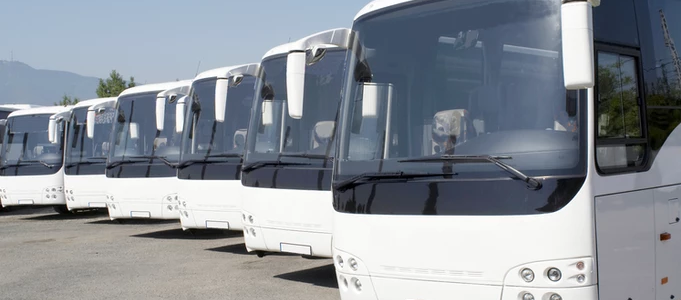
We have been posting a number of blogs on the electrification of fleets across industries with an emphasis on the heavy-duty fleet sector. Without a doubt, the electrification in transportation is an inevitability and with reason: not only does it lead to technological advances that increase efficiency but it also offers an essential response to environmental and sustainability concerns.
We covered both the barriers and benefits of the electrification of heavy-duty fleets in our last blog post (link to Blog Post C). Now we turn our attention to the implications of adding electric models to heavy diesel industries, among other updates on the advancement of heavy-duty fleet electrification.
Air Quality and Health
Much of the air pollution in lower-income communities comes from the diesel trucks that move products to and from nearby industrial areas. Diesel emissions are also a major source of nitrogen dioxide which prevents these areas from achieving air quality levels necessary for good public health. The state of California estimates that their new electric truck mandate could prevent 900 premature deaths in these communities and deliver $9 million in public health benefits.
Impact to Grid
Electrification of the heavy-duty sector presents unique challenges and opportunities compared to light-duty EVs. With considerably larger batteries and higher charging rates, if left unmanaged, charging heavy-duty vehicles could have negative impacts on the grid. However, implementing smart charging systems can reduce these impacts. Mechanisms such as off-peak electricity demand charging, dynamic controlled charging and vehicle-to-grid (V2G) could all help to mitigate the impact of electric trucks (eTrucks) and electric buses (eBuses) on peak demand and reduce electricity generation capacity needs.
Oil Demand and GHG Emissions
Even though trucks represent less than 5% of the global vehicle stock, their high fuel consumption and mileage means that they are responsible for over a third of global diesel demand and 3% of total global energy demand. The electrification of these trucks would therefore have a significant impact on overall diesel and oil demand. Across all vehicle weights, it is estimated that EVs will displace 4.3 million barrels of oil per day by 2030. GHG emissions are closely related to fuel consumption, and medium- and heavy-duty trucks are responsible for a sizable share of total GHG emissions. As diesel drivetrains give way to electric, the resulting fall in GHG emissions will be considerable.
Government interventions to accelerate the transition of heavy-duty transport to electric
California is the first state to approve specific legislation to accelerate a large-scale transition of zero-emission medium- and heavy-duty vehicles. The Advanced Clean Trucks (ACT) Regulation was passed by the California Air Resources Board to help the state meet its mandates to reduce air pollutants, in order to protect public health and meet climate change targets.
The regulation requires that manufacturers who certify Class 2b-8 chassis or complete vehicles with combustion engines would be required to sell zero-emission trucks as an increasing percentage of their annual California sales from 2024 to 2035.
Seven other states and the District of Columbia have signed a statement of intent to pursue a similar medium- and heavy-duty zero emission vehicle initiative.
The importance of varied EV model support for complete fleet management
As fleet and sustainability managers make their long-term plans for fleet electrification, it’s vital to select a fleet management platform that can support the greatest range of makes / models, and that has the capabilities to accommodate the most new EVs as they come to market.
Geotab has been independently ranked as the number one commercial telematics vendor for two years running. And with support for over 100 electric vehicles, it’s the strongest telematics provider in the EV space.
It’s likely that managers will initially have to operate a fleet consisting of both electric and conventional vehicles. The fleet management platform must therefore be able to work with all drivetrains, so that performance data such as mpg and mpg-e can be directly compared. The platform also needs to be able to collect electric-only data such as battery state of charge, to ensure optimal performance and maximum ROI during the transition to an all-electric fleet.
Our Geotab fleet management platform offers the widest make / model support of all EVs, from light- to heavy-duty, to support your fleet today and into tomorrow.
(Article source: https://www.geotab.com/white-paper/heavy-duty-fleet-electrification-trends/)

